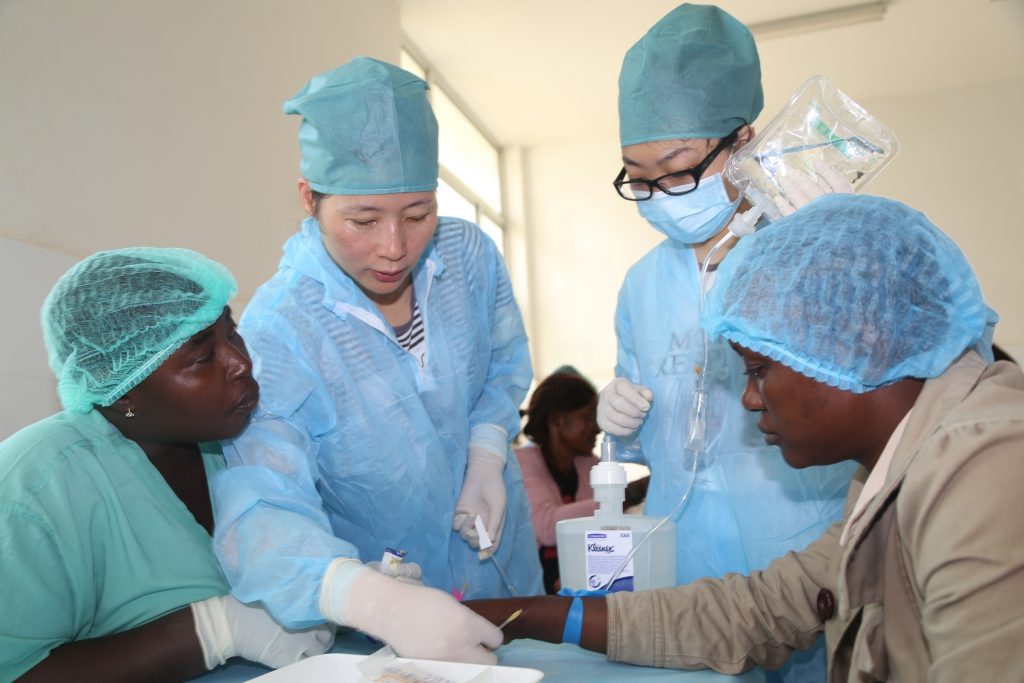Marta was about to finish her studies in medicine when she, along with a bundle of fellow doctors-to-be, decided to spend her summer holidays in the Philippines. Blue-eyed and blonde, short and fragile, she is my little niece and the apple of my eye. But she is also self-assured and far stronger than the initial impression that her fragile appearance conveys… And when she felt the spur-of-the-moment drive for joining a humanitarian cause, for living the volunteering experience, and finally, for enjoying two additional weeks in the paradisiacal archipelago, no one in the world was capable of stopping her from crossing the planet. Once back home, she brought her baggage full of countless emotive stories, joy and tears, gratitude from and towards the Filipino people, a worrying sunburn, and hundreds of digital pictures already posted on Facebook and Instagram.

Daily Coro is also a Spanish speaker and a young doctor, hers and my wife’s middle name are the same, however, she is not my niece. Daily Coro is something of a celebrity due to an article published by the BBC (see here) and other items broadly spread on social media. She is one of those courageous young professionals who have been prompted to participate in the Cuban international missions, carried out by the communist regime as a symbol of its solidarity with other peoples of the world. In fact, since the triumph of the Castro-led revolution, the Caribbean island has sent an “army of white coats” to different places overseas where the shortage of physicians required the presence of its brigades of well-qualified volunteers.
But Daily Coro’s experience is quite a different one from Marta’s. In contrast to my niece’s adventure of voluntourism, she has gone through a real ordeal, having to deal with an overwhelming workload in a dangerous Venezuelan neighbourhood without either appropriate preparation or support. Soon enough, Daily Coro found herself deceived by her government, enrolled in its money-making healthcare business, but at the expense of terrible damage to her tender mind. Two different sides of the volunteering coin: Marta, the niece I take pride in, and Daily Coro, the brave young doctor to be proud of.
Needless to say, Daily Coro’s story may help understand the new global order that has been mirrored by the humanitarian industry. There are new players in the development game of chess, such as China, India or even Cuba, perceived as equal developing countries and benefitting from the aura of championing a fairer South-South partnership which, at the end of the day, somehow contributes to de-centring the white gaze of development. Nevertheless, these rising powers also have their own geopolitical agenda and when they roll out their cooperation schemes, all too often, the alleged change is fictitious as the main purpose of their actions is the defence of a vested interest.
Therefore, the means seem to be justified by the economic ends, and the Cuban medical army might well have been conceived as a propagandistic stratagem whose façade conceals a less altruistic commercial operation. Health expertise in exchange for Maracaibo’s petroleum or the currencies denied by a disproportionate embargo… But who is paying the bill? Is the government entitled to sacrifice its youngsters’ lives? According to the Cuban educational policy, the answer is yes, taking into consideration that everybody in the island who is provided with university studies is obliged to a mandatory civil service for a three years period which, however, can be shortened by volunteering in the abroad missions.
And there are other well-known examples. Take China during West Africa’s Ebola crises (see here). Back then, only a small number of Chinese professional volunteers responded to the emergency call, mainly by joining Médecins sans Frontiers or some other foreign NGO’s… However, once their government realised the importance of reinforcing the arduously built mutual confidence and ensuring future business opportunities in the region, as opposed to the Western countries, the Chinese authorities denied the evacuation to their own nationals who ‘voluntarily’ remained in the front-line.
“Or will Chinese volunteers arrive in Africa in a second wave of cultural expansion of its influence-not dissimilar to traditional Western notions of ‘development’? (Denskus, T., 2017 Aidnography)”
Regardless of the panic triggered by such a policy, the desire to distinguish China commitment with African countries from their former metropolis’, compelled Chinese regular workers to accept that the reins of their fate were being held by Beijing. More often than not, the lives of the commoners are worth peanuts for the almighty rulers of the world, no matter the country or the corporation whose profits are put at risk.

To conclude, I would like to draw some attention to the role played by ICTs and social media in the volunteering industry which, in my view, is two-fold depending on where the volunteers are from. On the one hand, many online platforms and devices have been developed to entice the Western youth to join the governmental and non-governmental international initiatives. But on the other, the excessive control of some authoritarian countries on both the Internet and the access to information has transformed social networks into invaluable tools to hold their governments accountable, and what is more important, to allow us to hear the muffled voices of the other Daily Coros in the world.





